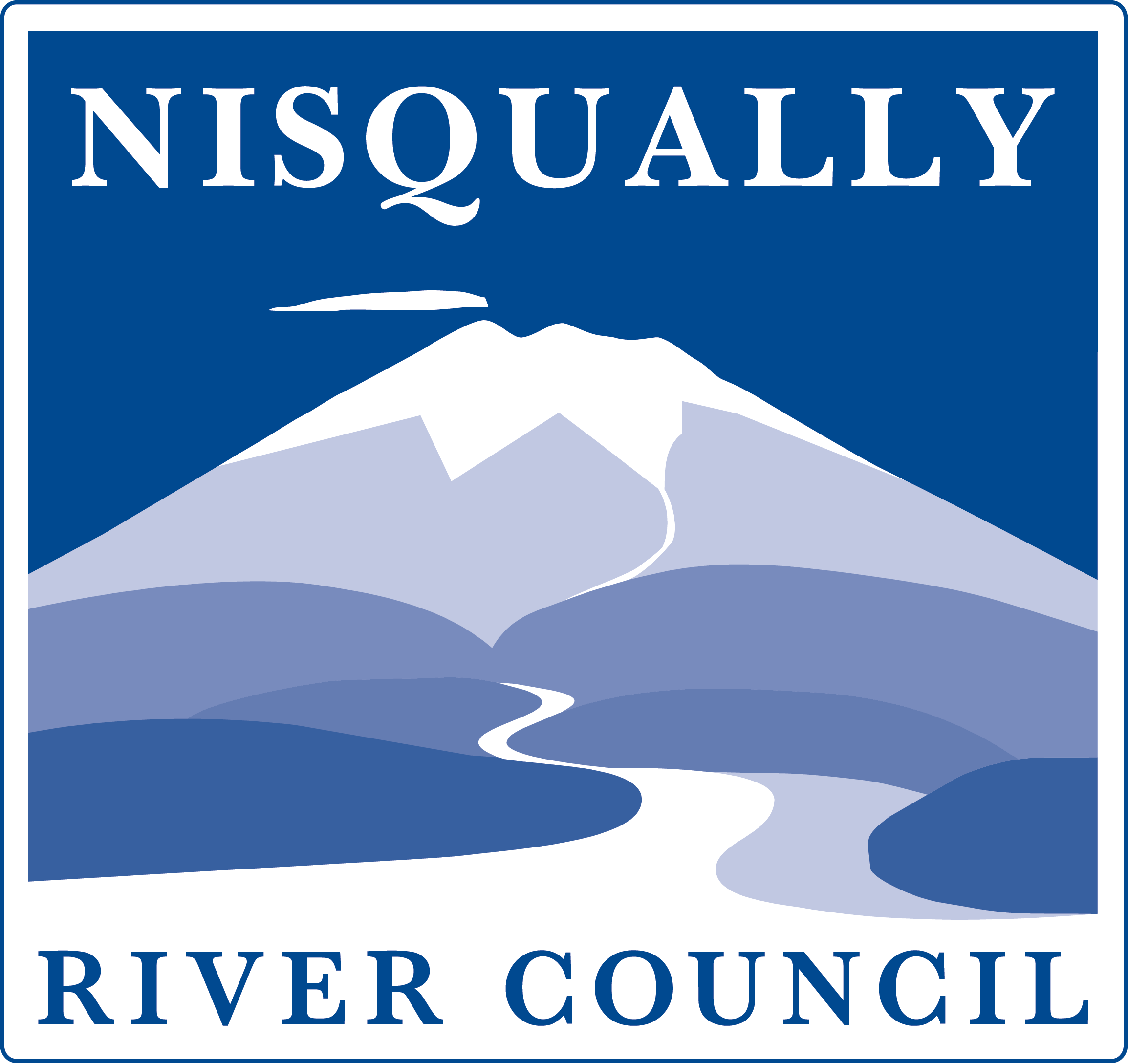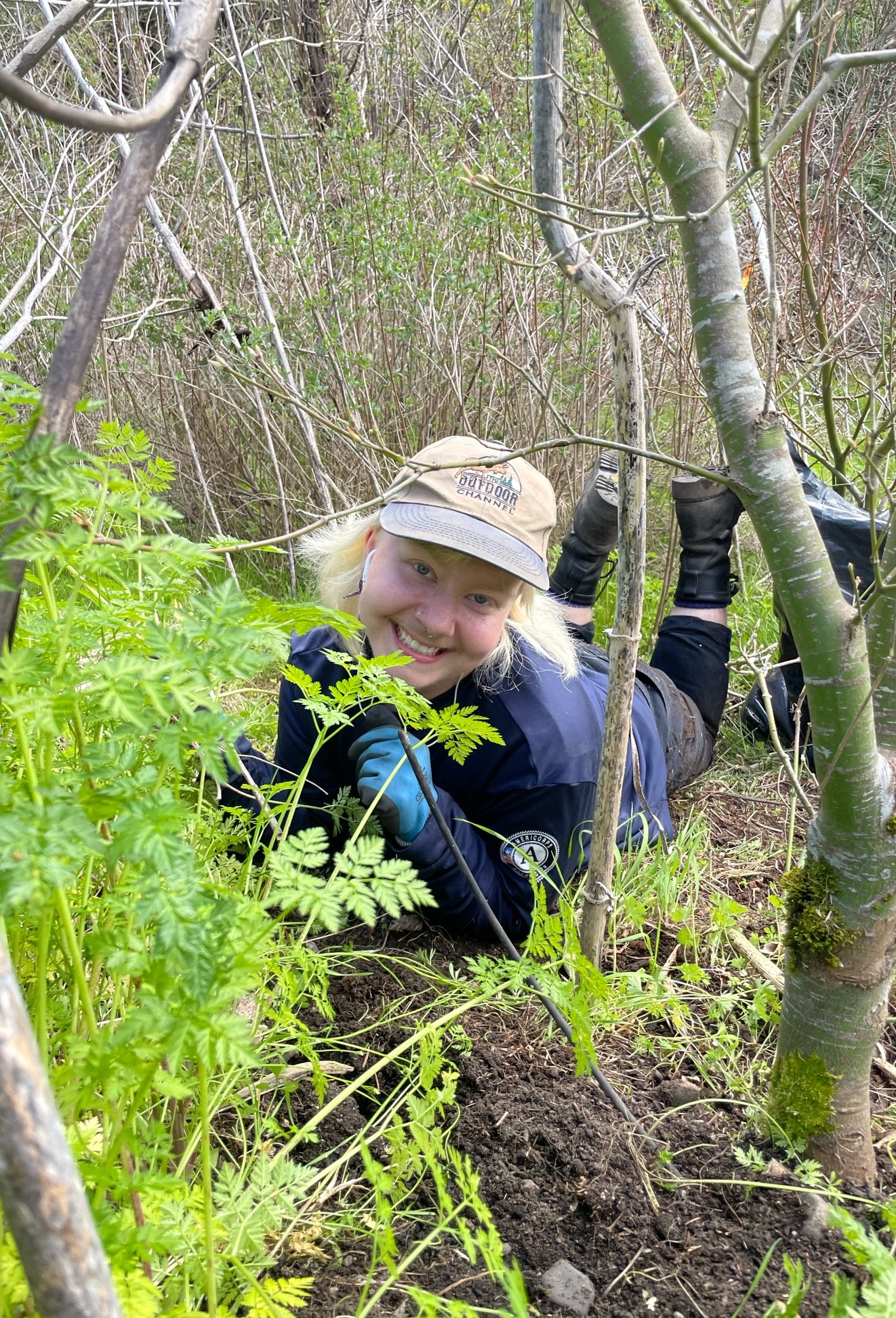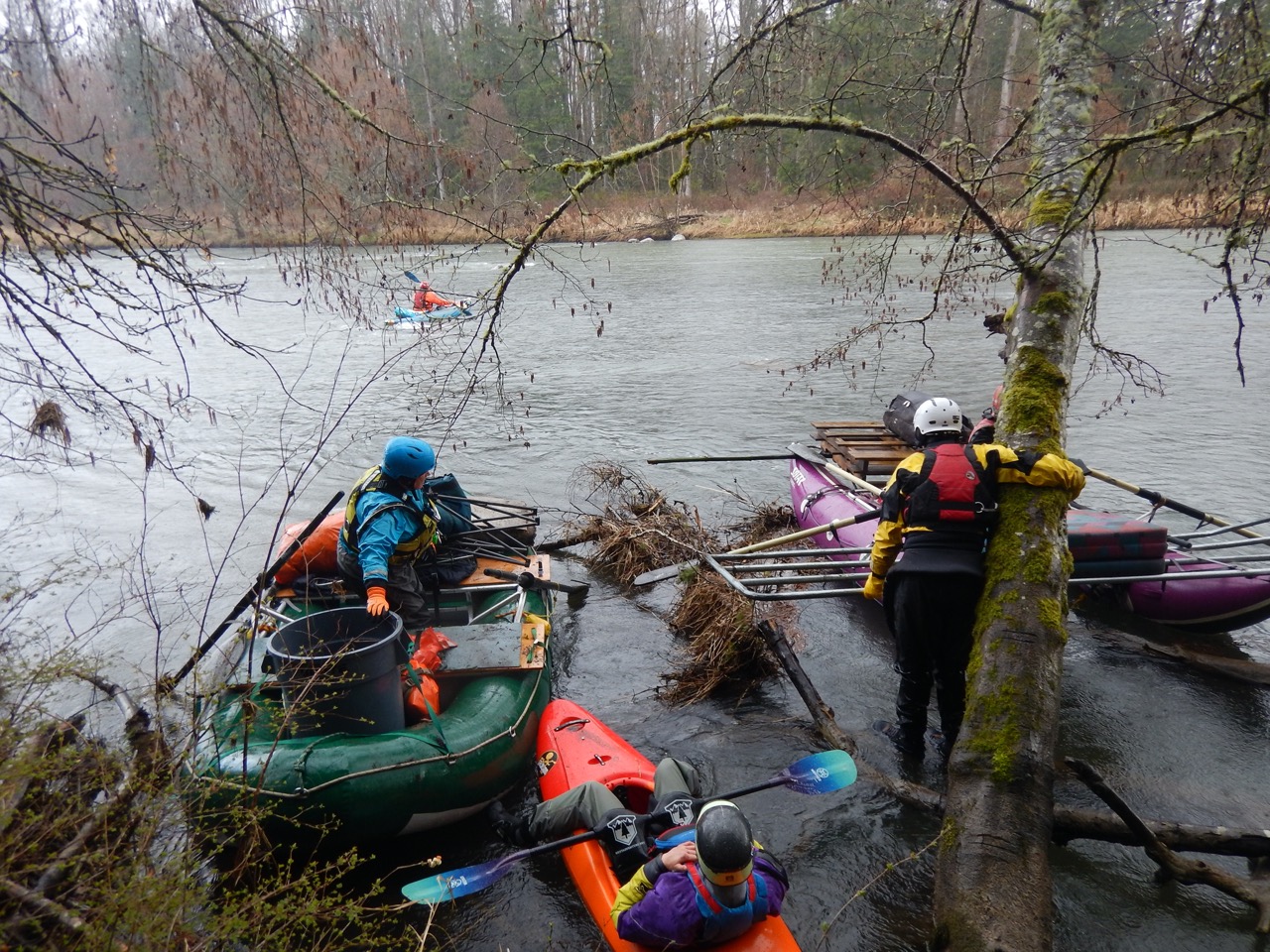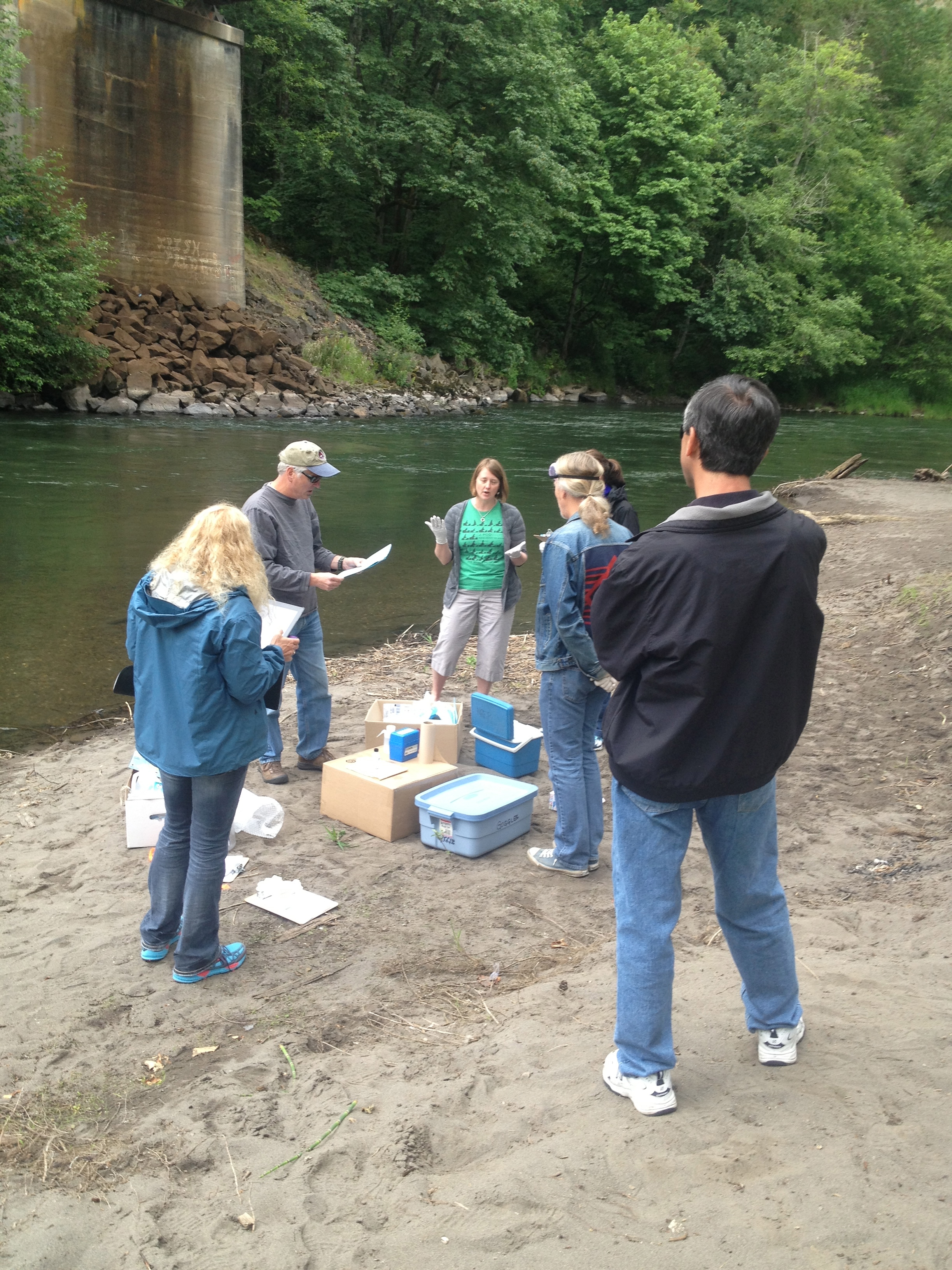On Monday, February 3rd, the Nisqually Watershed had some important visitors. The US Secretary of the Interior, Sally Jewell, returned to her home state of Washington to meet with USGS and National Park Service scientists. The purpose of the meeting was to discuss impacts of climate change at Mount Rainier National Park.
The group snowshoed to the Nisqually Glacier, where Secretary Jewell learned the unsettling truth about the glacier–it has receded by almost half a mile. The implications of the melting glacier are huge: Olympia depends on the Nisqually to provide the majority of the city’s clean drinking water; salmon rely on the high quality freshwater to complete their life cycle; the river plays an important cultural role to community members; the list goes on.
The meeting was sparked by President Obama’s recent State of the Union address, during which he acknowledged climate change as a fact. According to NPR’s report, the President “is committed to tackling climate change” for the benefit of future generations.
A recording of the NPR story can be found here: http://nwpr.org/post/secretary-interior-tours-mount-rainier-national-park-talks-climate-change.
The talk aired on February 4–coincidentally, the same day as the official launch of the Nisqually River Foundation’s own climate change adaptation project. This year, NRF was accepted to be a part of the 2014 Climate Solutions University, a project of the Model Forest Policy Program (MFPP). NRF will be working alongside 4 other communities as we complete a rigorous 10 month program, culminating in the creation of a Climate Change Adaptation Plan. This plan will focus on the entire Nisqually Watershed, and will be developed with the close support and input of stakeholders.
The other communities hail from across the US–California, Michigan and Minnesota, to be specific. While the specific issues facing each community will be unique, we all share common goals: create resiliency in our communities; protect our forests and freshwater supplies; and promote the implementation of each adaptation plan. Assisting each of us through the process are the talented staff of the Model Forest Policy Program (MFPP). Again scattered throughout the nation, these staff members provide expertise in different fields key to the creation of an adaptation plan, including climate science, natural resource policy and community planning. There are 28 other communities that have already completed the CSU program in previous years; we are thrilled be part of the next wave. More information on the CSU program can be found at www.mfpp.org.
While the impacts of climate change are real, and in many ways, are already occurring, the Nisqually watershed will not face these changes unprepared. Climate change adaptation is a central theme to national politics, but meaningful changes can be made on a local scale too. With the help of MFPP, the Foundation will strive to connect Nisqually watershed communities in maintaining resiliency despite changes in our climate.




